How to Prepare to the Second Semester of Organic Chemistry
Organic chemistry is an extremely interconnected science. As you have already seen in the first semester of your organic chemistry sequence, one topic connects to another in such a way, that mastering consequent topics is very hard without mastering previous ones. Before we go further, let’s look at the typical first semester organic chemistry topics.
Typical Organic Chemistry 1 Topics
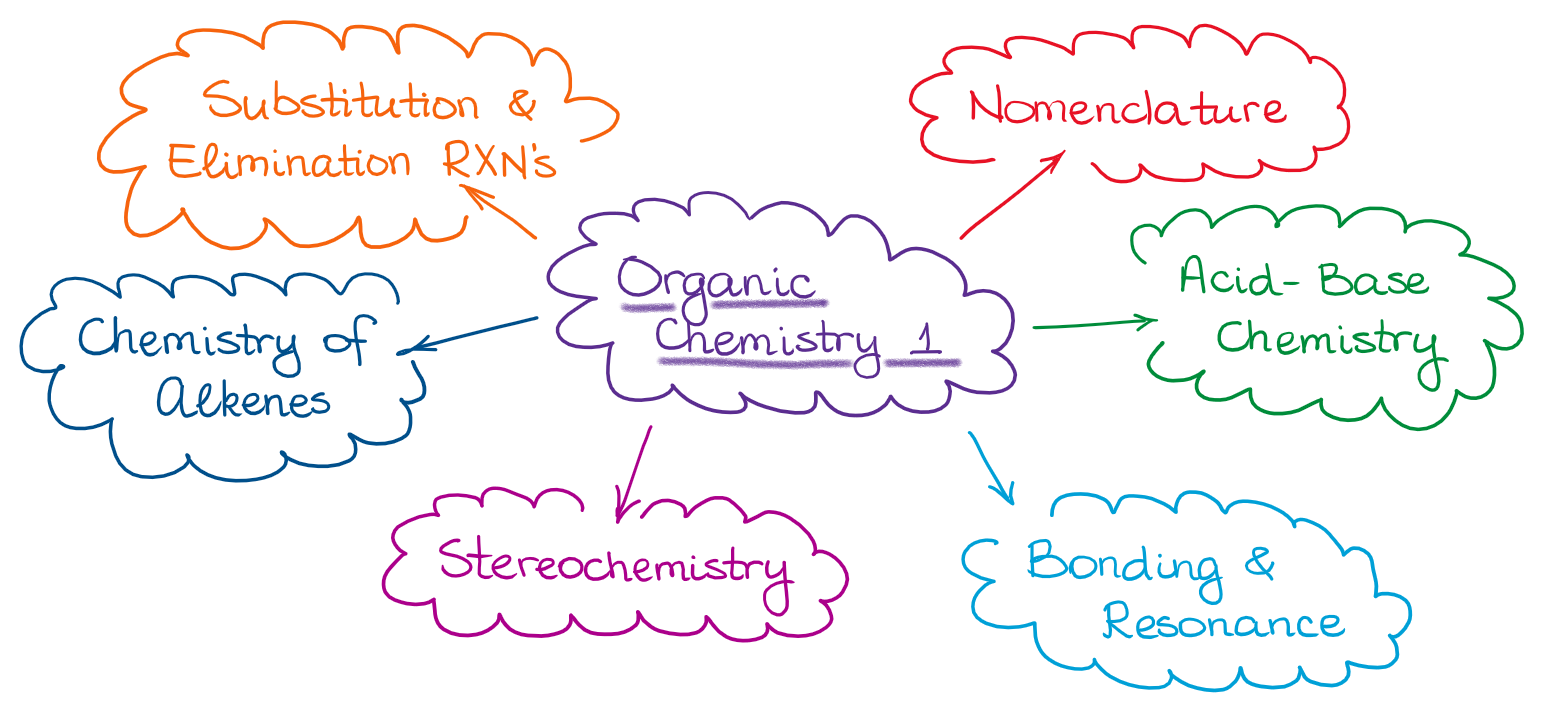
There are many topics that you will typically see in the first semester organic chemistry course. Those are:
- Nomenclature
- Acid-Base Equilibrium
- Bonding and Resonance
- Stereochemistry
- Substitution and Elimination Reactions
- Alkenes and their Reactions
Then, there are some “maybe” topics that may be in the first or in the second semester of organic chemistry. It generally depends on the instructor’s preferences and the textbook they’re using. Based on my own experience, those topics are:
- Alkynes and their Reactions (usually OChem 1)
- Spectroscopy (I’d say it’s a 50/50 split between the first and the second semester. Although, I’ve seen more and more instructors pushing it in the first semester in recent years.)
- Alcohols, Thiols, Ethers, Epoxides, and Sulfides. (More often than not, it’s a 1st semester topic. But again, it really depends on the instructor and textbook).
So, I’m going to keep those “maybe” topics out of our conversation for now and only focus on those that you have definitely seen in the first semester. In case you don’t quite remember what those are all about or maybe are used to calling them differently, I’m going to briefly go over those to refresh your memory.
Nomenclature

This is one of those topics that goes through the entire course and resurfaces once we start every new chapter. Nomenclature is the language of organic chemistry, so knowing how to properly name molecules is important. Some instructors emphasize it more than others. However, you absolutely want to know the fundamental of nomenclature for any standardized exams like MCAT or ACS.
Conclusion: Nomenclature is a type of topic that’s good to know but it’s not a “must-know” if you want to succeed in the second semester.
Acid-Base Equilibrium

This is a big one. While you have seen acid-base related questions in the first semester, those usually were separate questions. In the second semester topics, you’ll be using Acid-Base Chemistry (ABC) concepts very often as a part of a question. So, if before we would always point out that you need to choose the strongest acid, or rank those acids, or find the best base, etc., now we will expect you to be able to do it on your own. THEN, we’ll expect you to use this information to solve the next bit in the problem.
Conclusion: ABC is a must! So, make sure you brush up on those concepts over the break.
Bonding and Resonance

Remember all those pesky resonance structures you had to draw for all those carbocations? Well, those are not going anywhere! Moreover, you’ll be using resonance more than even in the second semester organic chemistry! You’ll be explaining a vast number of reactivity and mechanisms using the resonance structures. So, make sure you review your resonance structures and how to deal with those.
When it comes to bonding in general, you’re not going to be learning much of a new information. It’s going to be same ol’ σ- and π-bonds. It will be somewhat important to remember the 3D orientations of the orbitals. But those will be same types of questions we’ve already seen when dealing with resonance.
However, like in the case with ABC, we’ll expect you to apply the concepts of bonding and resonance towards solving the problems! Those are no longer going to be separate questions. So, identifying resonance structures and recognizing different bonding patterns will be very important.
Conclusion: Bonding and resonance is a must for the review.
Stereochemistry
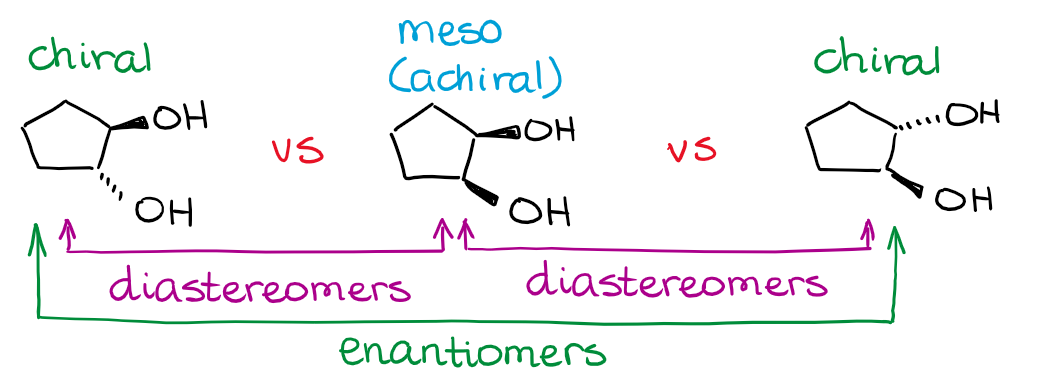
While stereochemistry is important, you’re not going to see much of it in the second semester. Well, ok, not true. Let me rephrase that. You’re not going to see anything new regarding stereochemistry among the second semester topics. Stereochemistry is always going to be a topic that you want to keep on the backburner since it can pop up at any point. While most reactions you’ll be doing in the second semester organic chemistry are not stereospecific, they can still make chiral centers, so you must be vigilant.
Conclusion: Stereochemistry is a good topic to review but won’t be the dealbreaker if you are a little rusty on it at the beginning of the semester.
Substitution and Elimination and Reactions of Alkenes

Topics that deal with reactions are not actually “fundamental” topics. They build on top of the fundamentals like bonding and ABC. Nonetheless, reactions are important! Don’t make a mistake thinking that you’ll never see alkenes or alcohols again because they were a part of the last semester material. As organic chemistry builds new topics on top of the old ones, everything you’ve covered up to date is a fair game. And yes, we do expect you to remember what was covered in the last semester. And now the kicker: no, we are NOT going to review the first semester, so it’s all on you!
One of the main goals of organic chemistry is the synthesis of new molecules. You can expect a 3-5 step synthesis as a “regular Tuesday” by the end of the semester. And those syntheses are going to be cumulative. So, if you’re rusty on the first semester reactions, you’ll have a really hard time with the end of the second semester material. I’m not going to sugarcoat it: if you don’t remember the first semester topics, there’s a very high chance you’ll fail organic chemistry 2. In my experience, I have not seen a single student to pass OChem 2 successfully without a decent foundation in the OChem 1 topics.
Conclusion: while you’ll be learning plenty of new reactions, don’t forget the old ones.
Typical Organic Chemistry 2 Topics
I’ve talked a lot about the first semester topics but what about the second semester organic chemistry topics? What are you going to be covering? Like in the case of OChem 1, there are some “classics” that everyone does in the second semester:
- Aromaticity and Reactions of Aromatic Compounds
- Chemistry of Aldehydes and Ketones (plus enols and enolates)
- Chemistry of Carboxylic Acids and Their Derivatives
- Amines and N-containing compounds
You may also see some “maybe” topics that will be there based on your school’s curriculum and instructor’s preferences. I’ve talked about those a little earlier in this post. You may also see some elements of biochemistry such as introduction to proteins, carbohydrates, and lipids. So, which OChem 1 topics are going to be most relevant to the topics in OChem 2?
Aromatic Compounds and Aromaticity
Resonance, resonance, and more resonance! You’ll be explaining >90% of reactivity of aromatic compounds via resonance. Aromatic chemistry is also a typical first (or among first ones) topic you’ll see in your second semester organic chemistry course. So, I suggest you review resonance and bonding first before the semester hits.
Chemistry of Aldehydes and Ketones
There will be two major branches here. The first one will deal with nucleophilic addition reactions to C=O bond. So, you may want to brush up on the concepts of electrophiles and nucleophiles that you have seen in the substitution and elimination chapters. Do you remember what makes a good nucleophile? You’ll need all that again!
The second branch of the carbonyl chemistry will deal with the chemistry of the adjacent to C=O carbon (we’ll call it the α-carbon or α-position). In this module you can expect a lot of ABC and equilibrium in general. So, along with the acid-base chemistry we’ve already seen in the first semester, you may want to blow the dust off your general chemistry notes and check those out for the equilibrium and Le Chatelier.
Chemistry of Carboxylic Acids and Their Derivatives
While you’ll see a lot of different reactions, they will be all very similar to each other. This is going to be a very diverse chapter, so I can’t really highlight a single most important “fundamental” topic here. You’ll see plenty of ABC, you’ll see some bonding and resonance, there will be plenty of equilibrium… it’ll be all over the place. But as I’ve mentioned a moment ago, reactions are going to be very similar to each other and you won’t be learning any new fundamental concepts at this point.
Conclusion
So, in conclusion, your break to-do list should have the following topics for review:
Must Review
- Bonding & Resonance
- Acid-Base Equilibrium
Should Review
- Reactions
- Stereochemistry
Wound be Good to Review
- Nomenclature
- Spectroscopy (if you covered it in OChem 1)
I also suggest you send a message to your instructor and ask them what they suggest you review. While (at least in my experience) they may just tell you to review your old notes, it won’t hurt to ask. It’s especially important if you have a different teacher this semester or are using a different textbook.

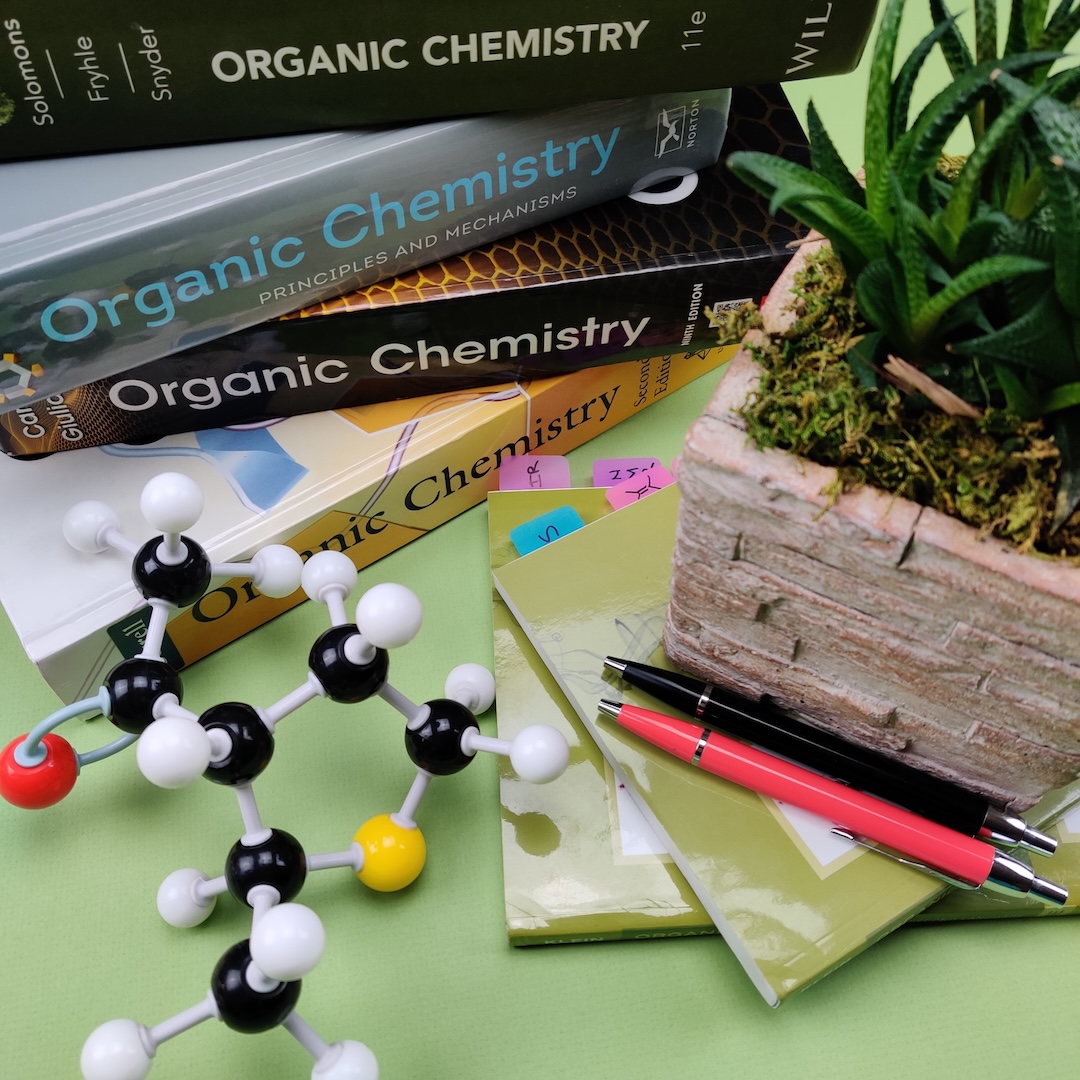
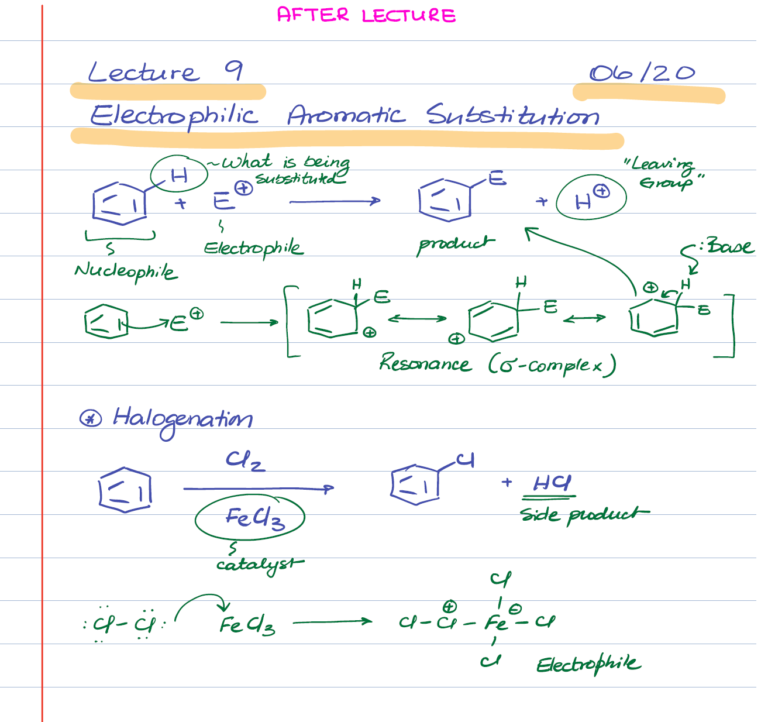
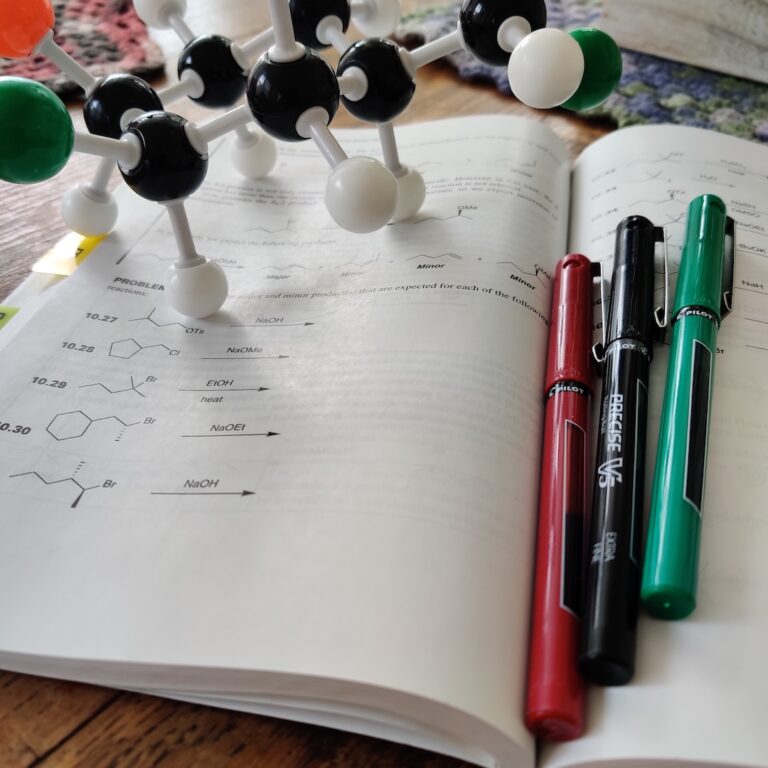

Hi victor,
Soooo I am a returning student, its been about 6 years since I have taken organic 1 and I have to take organic 2 for PA school. I got a B- in organic 1. Do you recommend me jumping into 2 or should I redo 1.
Hey Josh, it depends on how much you still remember from your first semester of organic chemistry. In my experience, students don’t retain enough after a long break to successfully go through organic 2 unless they’ve been actively reviewing the material. So, it might be best if you retake organic 1. I’m also working on an assessment tool to help students determine if they are ready for organic 2. It should be up later this month. I’ll keep everyone posted via my social media accounts.
Hi Victor:
I’m a chemistry major taking my second semester of Ochem at Ohio State this spring. I got a B in Ochem 1 and do not feel strong in my application of a few of last terms concepts. Hoping to get off on the right foot this semester and want to see if you would consider tutoring me weekly. Please let me know if we can set up a meeting to see if we are a good fit.
Hi Hadley, fill out the application at the bottom of the tutoring page here: https://www.organicchemistrytutor.com/organic-chemistry-tutoring/ and we’ll go from there.